political extremism
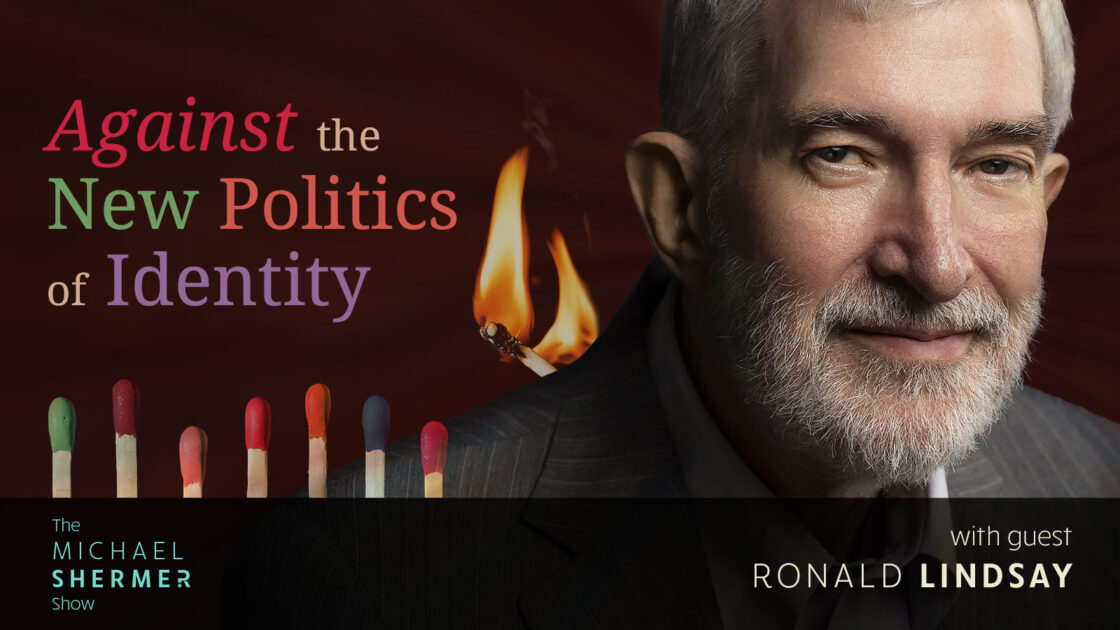
Shermer and Lindsay discuss: identity politics: identity or politics? • woke ideology • overt racism vs. systemic racism • liberalism vs. illiberalism • woke progressive leftists motivations? • Critical Race Theory (CRT) • Diversity, Equity and Inclusion (DEI) • What is progressive? What is woke? • standpoint epistemology • equality vs. equity • race • class • cancel culture • Christian nationalism.
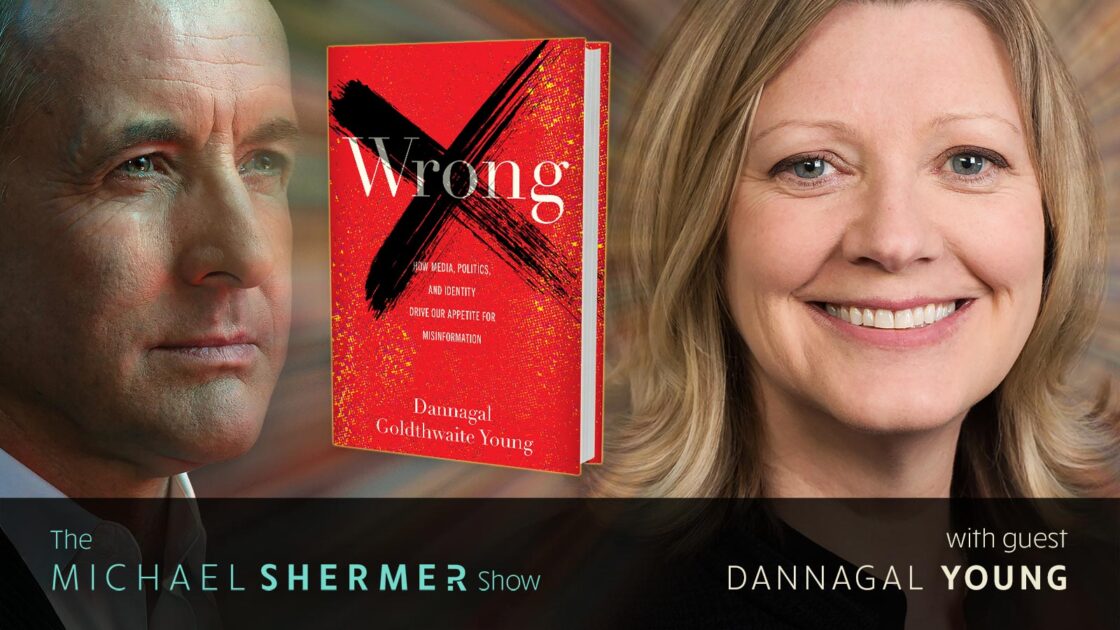
Shermer and Young discuss: how do you know if you are wrong, or that someone else is wrong • the evolution of reason: veridical perception or group identity? • the 3 “Cs” of our needs: comprehension, control, community • open-minded thinking • intellectual humility • political polarization • echo vs. identity chambers • social media • lies • disinformation • Donald Trump • democracy • science and morality • solutions to identity-driven wrongness.
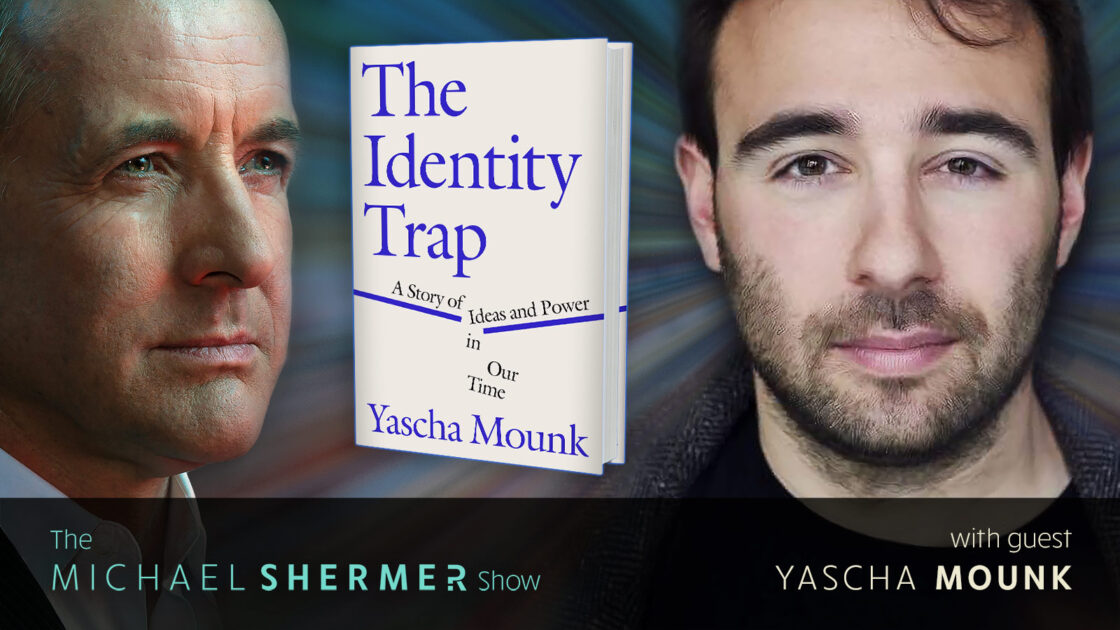
Shermer and Mounk discuss: the identity synthesis/trap • Israel, Hamas, Palestine • why students & student groups are pro-Palestinian and anti-Israel • the rise of anti-Semitism in recent years • proximate/ultimate causes of anti-Semitism • the rejection of the civil rights movement and the rise of critical race theory • overt racism vs. systemic racism • the problem of woke ideology • Trump and the 2024 election • the possibility of another Civil War • What should we do personally…
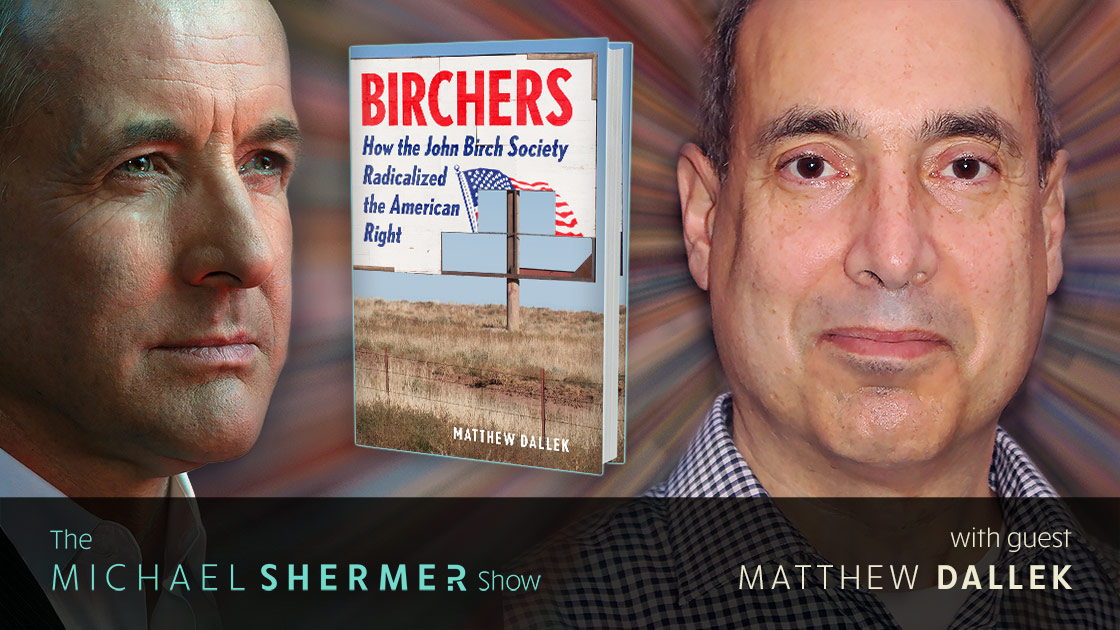
Shermer and Dallek discuss: the origin of the John Birch Society • the “right,” “conservatism,” “liberalism” • “mainstream” vs. “fringe” • Cold War context for the rise of the radical right • the link between the John Birch Society and radical right figures today like Michele Bachmann, Sarah Palin, Marjorie Taylor Greene, Glenn Beck, Alex Jones, Ron Paul, Rand Paul, and Donald Trump • COVID denialism, vaccine disinformation, America First nationalism, school board wars, QAnon plots, allegations of electoral cheating…
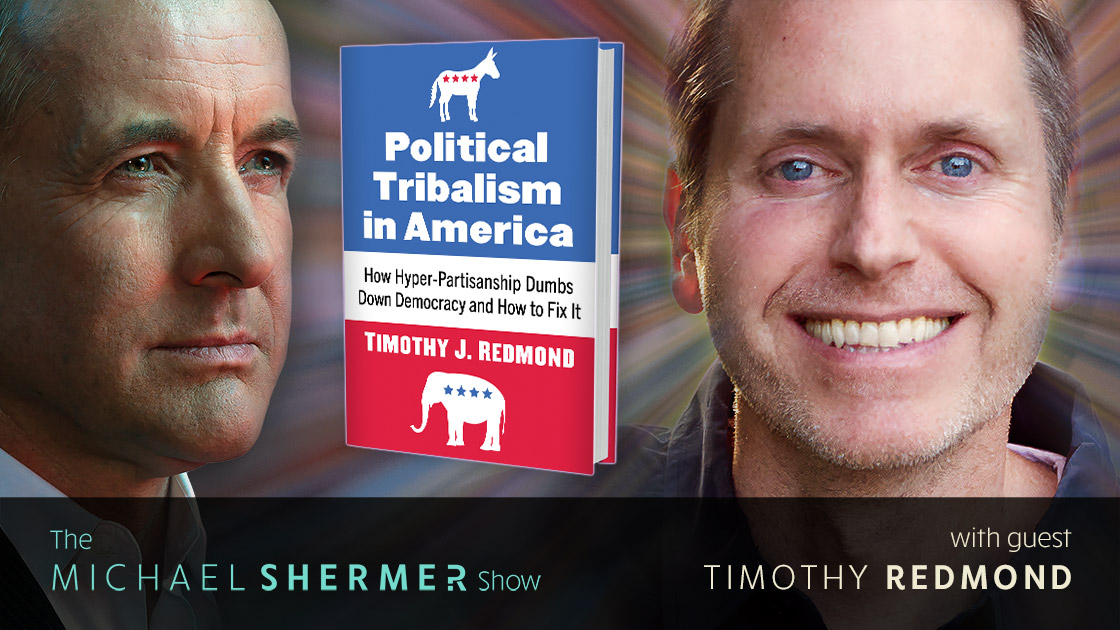
Shermer and Redmond discuss: why we have political duopoly (Duverger’s law) • parties vs. policies • Are we living in a post-truth, fake-news, alternative facts world? • How do we know political polarization is worse now than in the past? • acquiring, perceiving, and evaluating political information • evaluating: false political information, political numbers and arguments, claims of rigged election • whataboutism • cognitive responsibilities of citizenship • cognitive biases • political polarization • myside bias • numeracy vs. innumeracy…
While many essays have addressed the social events and psychological traits that drive polarized thinking, the neural underpinnings of uncertainty and polarization are largely unknown. We know the brain processes information and makes decisions, but we know little about how politically polarized information is encoded, and even less about how attitudes about uncertainty influence that processing. Why is it important? In this article Natasha Mott explains that uncertainty may be seen as a threat, which moves individuals toward certain positions…
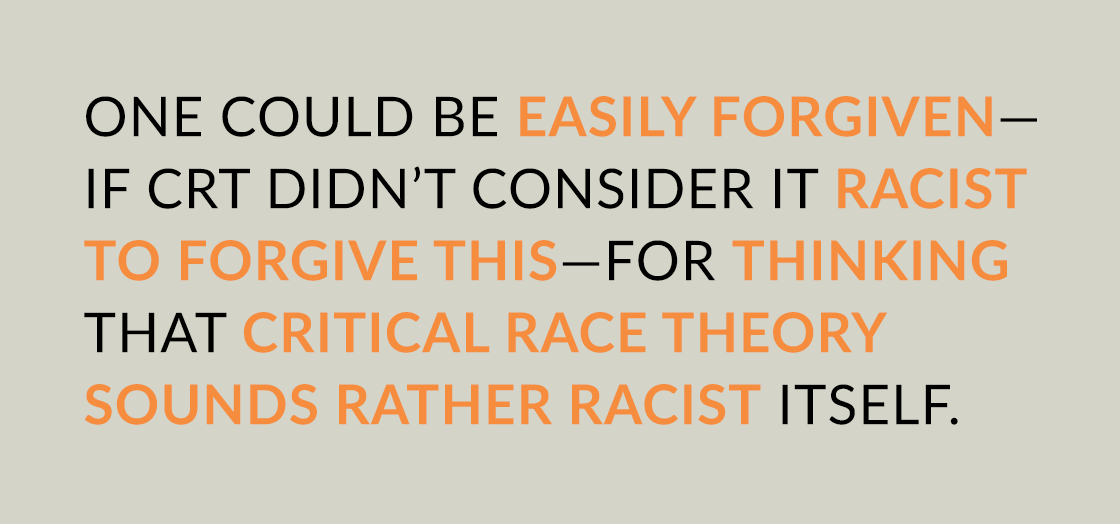
Critical Race Theory (CRT) is, at root, an American phenomenon. So thoroughly is this the case that although its ideas have been used outside the United States for some time, they are often highly flavored by U.S. racial history. CRT holds that race is a social construct that was created to maintain White privilege and […]
In episode 213, Michael Shermer speaks with Mike Rothschild, a journalist specializing in conspiracy theories, about QAnon and its followers, based on his book The Storm Is upon Us: How QAnon Became a Movement, Cult, and Conspiracy Theory of Everything. PLUS, we present as a free PDF download the Memorial Tribute to Skeptic’s Art Director and Co-Founder, Pat Linse, which appeared in Skeptic 26.3 (2021).
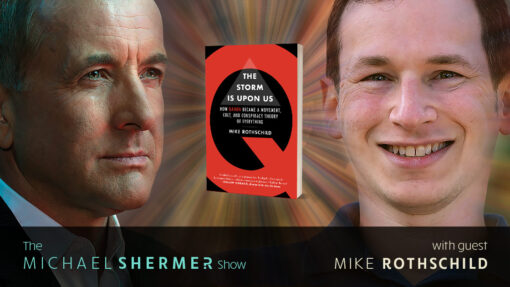
Its messaging can seem cryptic, even nonsensical, yet for tens of thousands of people, it explains everything: What is QAnon, where did it come from, and is the Capitol insurgency a sign of where it’s going next? Mike Rothschild is a journalist specializing in conspiracy theories. He has been collecting stories for years through interviews with QAnon converts, apostates, and victims, as well as psychologists, sociologists, and academics. He is uniquely equipped to explain the movement and its followers.
In this cover story article (written in October 2020) for Skeptic magazine 25.4 (December 2020), Daniel Loxton considers the unsavory origins and rising threat of the QAnon conspiracy theory. Written prior to the deadly QAnon-led occupation of the Capitol Building in Washington, DC on January 6, 2021, this analysis exposes the conspiracy theory as baseless, unoriginal, and harmful for believers and society at large.
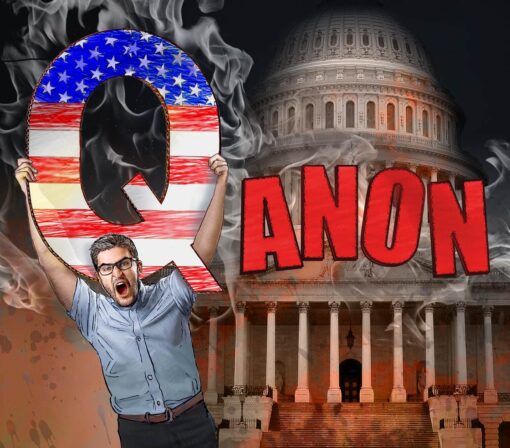
In this cover story article (written in October 2020) for Skeptic magazine 25.4 (December 2020), Daniel Loxton considers the unsavory origins and rising threat of the QAnon conspiracy theory. Written prior to the deadly QAnon-led occupation of the Capitol Building in Washington, DC on January 6, 2021, this analysis exposes the conspiracy theory as baseless, unoriginal, and harmful for believers and society at large.
In Science Salon # 114, Michael Shermer speaks with Katherine Stewart about her new book The Power Worshippers: Inside the Dangerous Rise of Religious Nationalism. PLUS: Frank S. Robinson reviews The Tyranny of Virtue: Identity, The Academy, and the Hunt for Political Heresies by Robert Boyers.
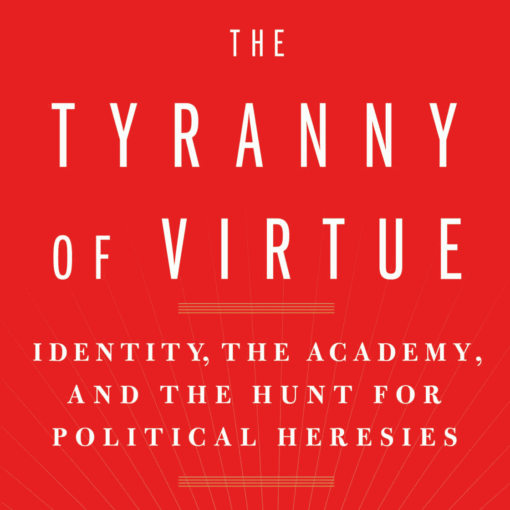
Frank S. Robinson reviews The Tyranny of Virtue: Identity, The Academy, and the Hunt for Political Heresies by Robert Boyers.
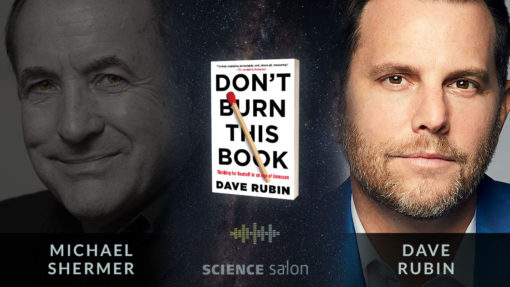
The left is no longer liberal. Once on the side of free speech and tolerance, progressives now ban speakers from college campuses, “cancel” people who aren’t up to date on the latest genders, and force religious people to violate their conscience. They have abandoned the battle of ideas and have begun fighting a battle of feelings. This uncomfortable truth has turned moderates and true liberals into the politically homeless class…
In Science Salon # 113 Michael Shermer speaks with Dave Rubin, the host of the political talk show The Rubin Report — the most-watched talk show about free speech and big ideas on YouTube — about his first book Don’t Burn This Book: Thinking for Yourself in an Age of Unreason.
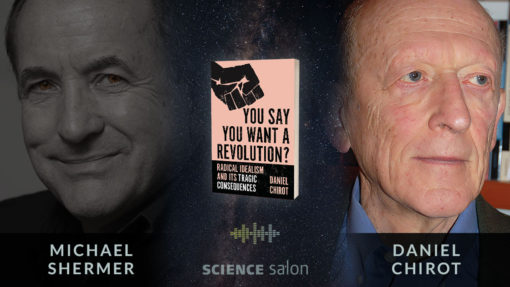
Why have so many of the iconic revolutions of modern times ended in bloody tragedies? What lessons can be drawn from these failures today, in a world where political extremism is on the rise and rational reform based on moderation and compromise often seems impossible to achieve? Daniel Chirot examines a wide range of right- and left-wing revolutions around the world — from the late eighteenth century to today — to provide important new answers to these critical questions.
In Science Salon # 106 Michael Shermer speaks with Daniel Chirot about his book You Say You Want a Revolution? Radical Idealism and its Tragic Consequences. PLUS: An excerpt from Is A Good God Logically Possible? by James P. Sterba.



















